
PDFs index and can rank in search engine. Due to this, it makes sense that links in the PDF pointing to another page can pass juice and will impact rank. Will it? Can you use this hack to help you gain effective backlinks to your site?
For this test, we determine whether a link in a PDF passes juice and can impact rank.
For this test on PDFs, we have a total of 4 tests under it. Each test below shows what is tested in particular, the test set up, and the result of the test.
5 test pages were setup. A PDF was uploaded and indexed on another testing domain. This domain had a DA of 1 and PA of 1. The PDF link was pointed to the 3rd ranking page and as you can see, the PDF with the link on it is indexed.
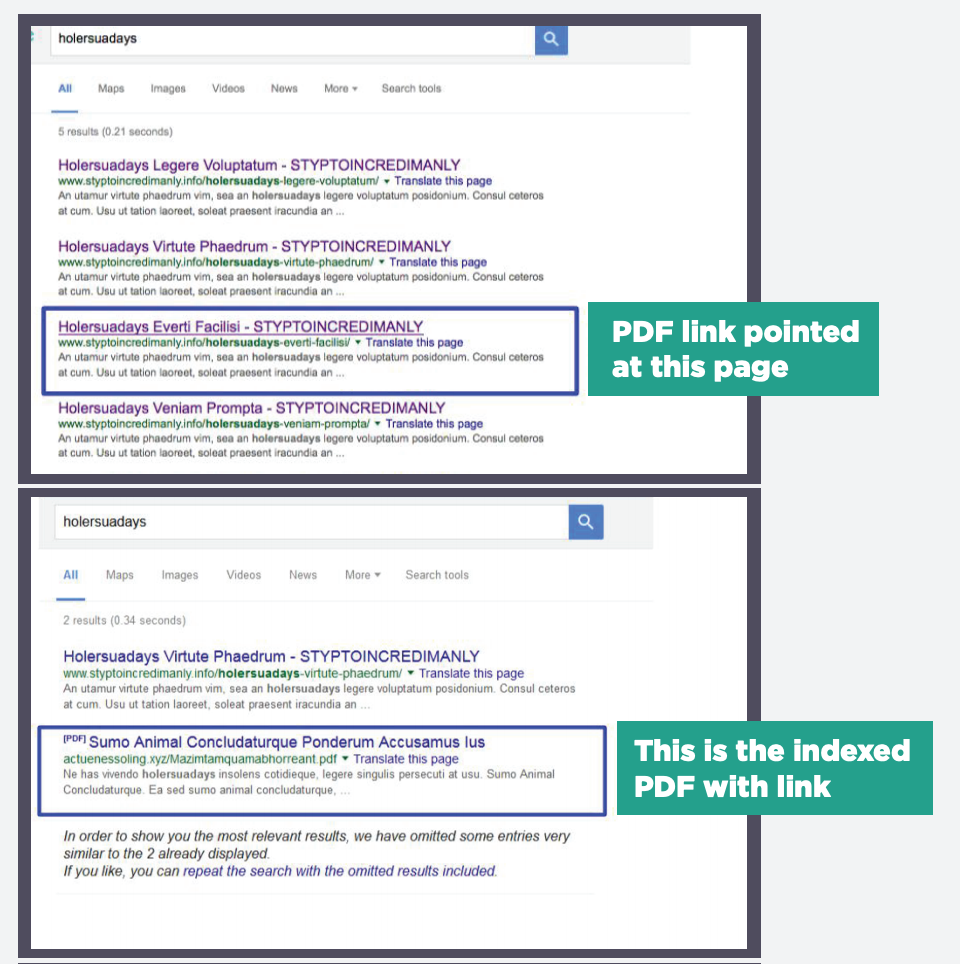
The test page with the PDF link pointing to it moved from the 3rd spot to the 2nd position. We confirm that a link in a PDF passes juice and positively affects rank.
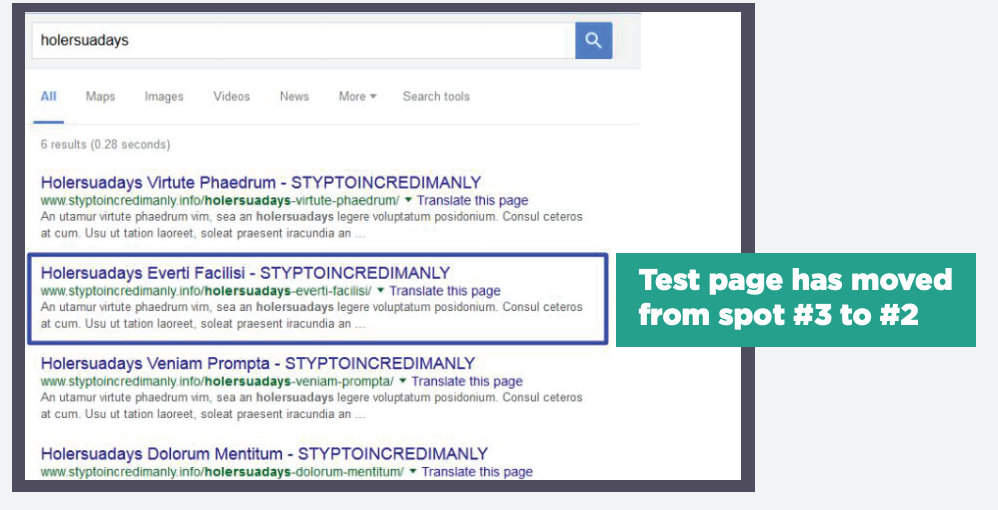
Since text links (non-hyperlinked link) have impacted rank in other tests, it appears plausible that the same impact will occur with a PDF with a text link that is not hyperlinked. To test this out, 5 pages were set up and a published PDF in Google drive with the text link was pointed to the 3rd ranking page.
The result of this test is that, there is no movement. It appears that text based, non-hyperlinked links in PDFs do not pass juice and does not impact rank. In order to get the juice to pass from the PDF, the link to the target page needs to be hyperlinked.
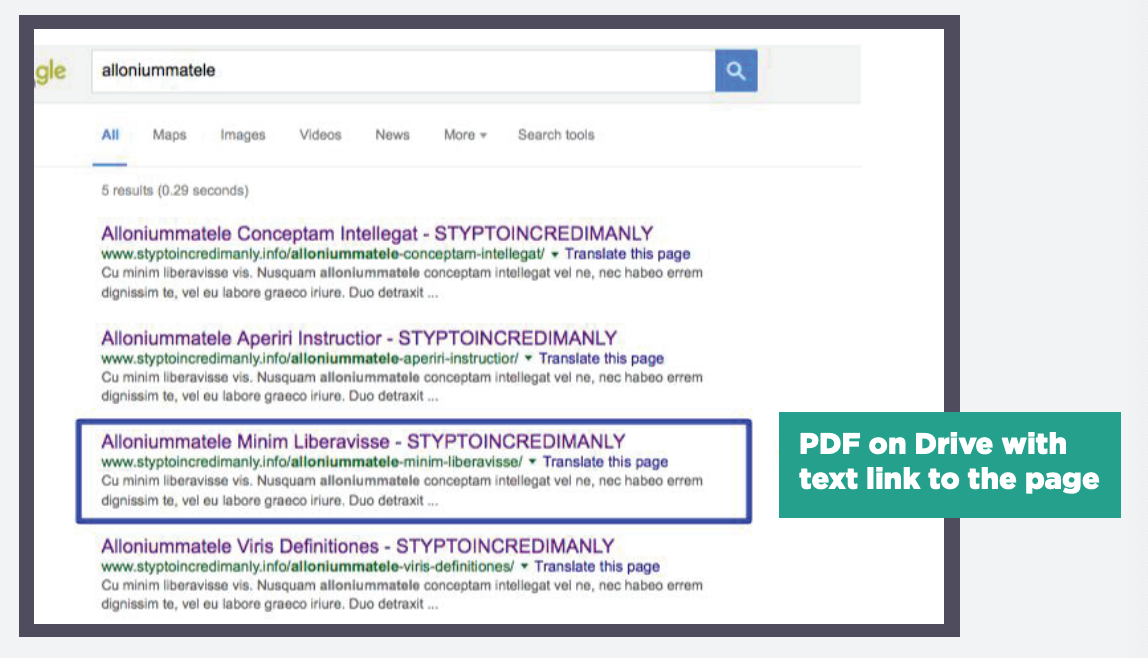
When looking for opportunities for ranking pages to drive traffic to money sites, the idea that building PDFs instead of webpages came up. For this test, we tested if PDFs can outrank and equally optimized page. For this test, 4 pages and 1 PDF were optimized for the fake keyword.
The result is that, the PDF ranked in the 5th spot. Unfortunately, this isn’t going to be a ninja trick to build PDFs to rank for target terms rather than webpages. PDFs are good for passing link juice to a web page but it would not outrank an equally optimized web page.
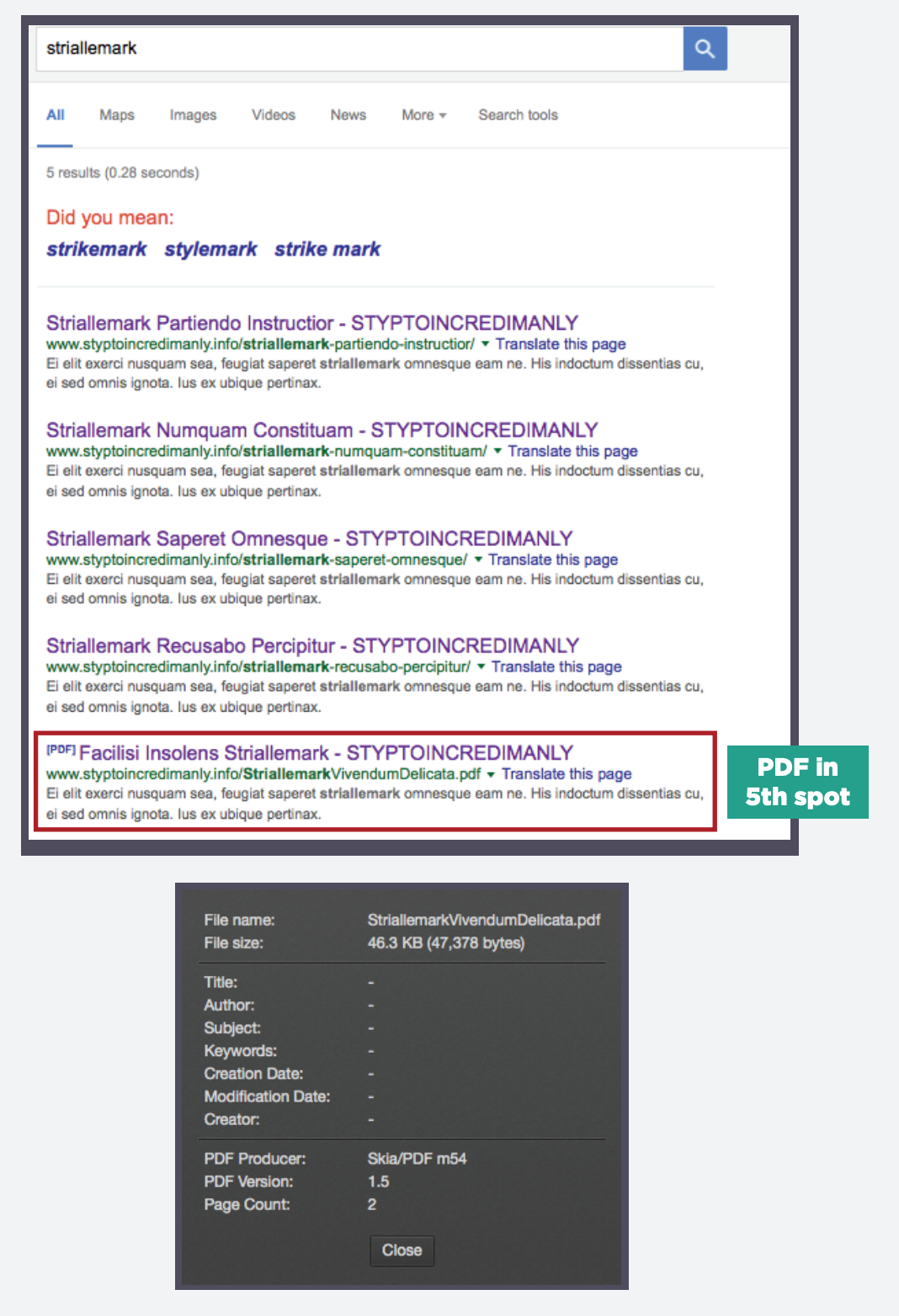
Since we have seen in test 4 that PDFs cannot beat webpages, we test if adding meta-data to the PDF would help improve it and can help it rise up above similar web pages.
For this test, 4 pages and 1 PDF were set up and were equally optimized for the fake keyword. Metadata was also added to the PDF.
Unfortunately, even adding metadata to the PDF did not help it rise up above the webpages. It just stayed in the 5th position.

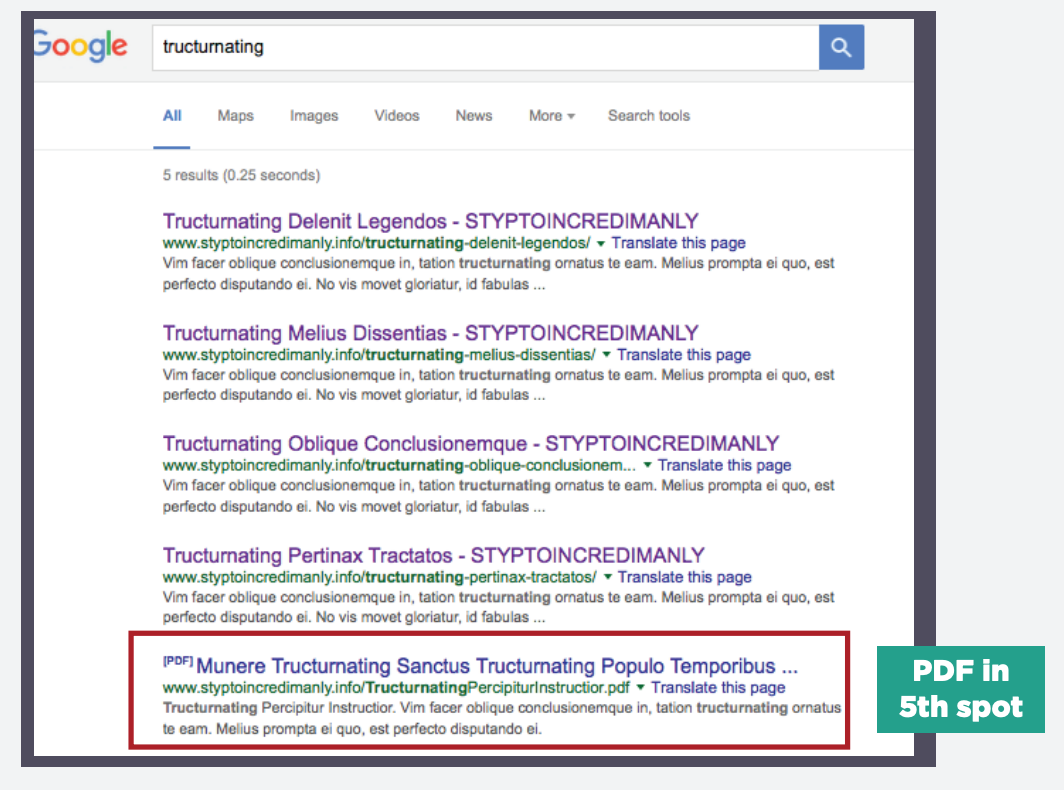
Test number 53 – Do PDFs Pass Link Juice?
It is test number 53 but there are actually four test in there. We’re going to go through each one.
First, test number one is – a PDF, indexes and ranks, it makes sense that a PDF pointing to another page will impact the ranking of that page.
So, get a PDF, you publish it as a link to a money page. In theory, it should boost the ranking of that page.
Test number two, since text links that are non-hyperlinked links – so it’s not really a link but there’s a URL to the money page inside of the PDF, there is no backlink, it’s just reading the URL – will it rank?
Web pages will rank higher than PDFs is test number three, and adding metadata to the PDF would provide an additional boost to outrank the web page. And basically, that’s just a play-off of the whole exif thing, you can do that with Adobe Bridge, you can put in all kinds of publisher, author, and associated websites and all that stuff that you pretty much do with EXIF data on an image, you can do with a PDF. So that’s that test.
The results of that is first, test number one, the test page moved from three to two, a link passes juice from a PDF and moves up the ranking of the page. Bear in mind, fake keywords, no SEO competition, just you in the algorithm, three to two is kind of blah. Like, who cares? And I think it’s probably more direct to the fact that you have a brand new web page, which is the PDF linking to a money page. In this case, the test page was brand new, zero plus zero equals zero, you’re not gonna get any value, or a whole lot of value from it.
Didn’t say where the PDF, yeah, it was loaded to another domain, it wasn’t linked to a service. So, let’s say you use a document sharing service, you might actually see a little bit better result than that. So that’d be a good thing to test.
Test number two, no movement. So text only of the URL, which is not a link. It’s just showing the URL in the text, did nothing to it. So Google read the PDF, analyzed the PDF, probably saw the URL there. So no backlink there, who cares? We’re not going to link to it. So that’s kind of a dead.
Test number three, the PDF ranked last. PDFs are good for passing link juice to web page, but won’t outrank the equally optimized web page. That’s an interesting assertion. And I think you have to define what equally optimized is. So let’s say both of them have in the test scenario, 2000 words, 10% keyword density, title and URLs were not, didn’t have the keywords in there, head to head like that, the PDF naturally, or in this case, the PDF or the web page. So then when you look at what Google’s doing when ranking web pages over websites, and then you have this PDF thing, it’s a document that is not – it’s really publishable but it’s not really very well shown on the web, especially at the time when you’re doing this, you might have a little bit of issues. This is definitely worth the retest and what I would like to do even more is to optimize a web page, and then optimize the PDF page better and see if the PDF will outrank the web page. My theory is that it actually would, but we can test that for sure.
And then number four, PDF in the 5th spot, the metadata didn’t do anything, it didn’t boost the PDF value, it didn’t give Google extra information that it used for ranking. So it kind of supports the same lines of the exif data in images that SIA saw, when they tested that – there wasn’t a whole lot of value in that either. So but that’s the effect with PDF.
So don’t waste your time filling out the metadata unless you’re publishing to a different service, like a hosting service, especially hosting services that support research sites and all that stuff because your PDF, if you fill out the metadata, you have an easier chance of getting tied to your Google Scholar accounts, and to build you as a trusted authority inside of whatever thing that you’re doing – publishing your research stuff on. So that is definitely an opportunity, at least if you’re thinking about leveraging stuff like author rank, etc. PDF metadata will be useful there.
Again, no SEO improvement, but you will get some associations and stuff like that and help you build out your scholar account at the same time. I hope this is pretty interesting.
I’d still say you could probably use PDFs to pass for linking. Some things that will be natural to build upon to this would be using PDFs or testing this again, because obviously, it’s an older test. Testing different services, finding out the winners. And then testing using PDFs as tier one buffers for example, all to support the overall ranking of your website and keep everything a little bit safer on your websites.